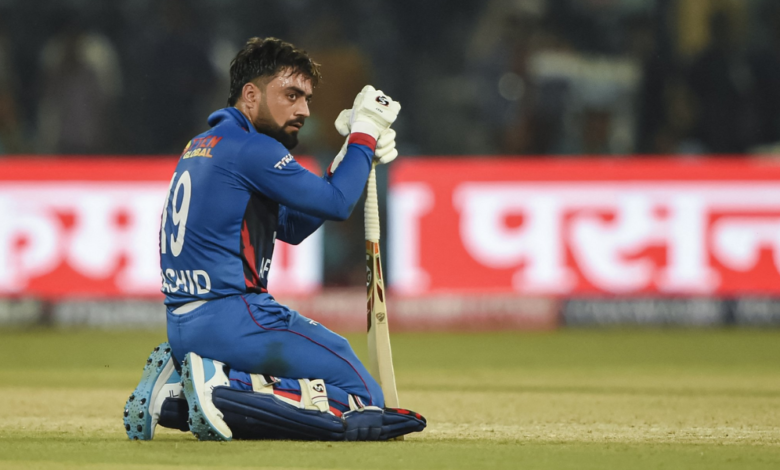Afghanistan Coach Admits they Weren’t Aware of the NRR Calculations, Fail to Qualify for Asia Cup Super Four

Jonathan Trott, the head coach of Afghanistan, has acknowledged that his team was not aware of the calculations that indicated they had a possibility of making the Asia Cup Super Four, despite failing to reach their target of 292 against Sri Lanka in the allotted 37.1 overs.
At 289 for 8, Afghanistan needed three runs off of the next ball to win and surpass Sri Lanka’s net run rate (NRR) at the end of the 37th over. Rashid Khan, a non-striker, fell to his knees after Mujeeb Ur Rahman, who was going for a big hit from Dhananjaya de Silva, was caught on the long-on boundary. Rashid Khan likely thought Afghanistan had lost their chance, which Trott subsequently verified.
However, they were still in it. If they reached 293 after 37.2 overs, 294 after 37.3 overs, 295 after 37.5 overs, 296 after 38 overs, or 297 after 38.1 overs, they may have finished ahead of Sri Lanka in net run rate. If Pakistani No. 11 Fazalhaq Farooqi had smashed a four off the first ball of the 38th over, a six off the third, fourth, or fifth delivery, or took a single to enable Rashid, who was batting on 27 off 16 balls, to try and complete the game himself, they might have been able to meet these goals.
Farooqi ended up blocking two de Silva balls, including a full-toss, before being out LBW while attempting to defend once more. He appeared to be making an effort to avoid being dismissed so Rashid might complete the match in the subsequent over and give Afghanistan a consolation victory. Afghanistan lost both of their Group B games and was eliminated from the tournament as a result.
We were never communicated those calculations: Trott after Afghanistan exit from Asia Cup 2023
Trott claimed during the post-game press conference that his side had not been told of the more complex NRR permutations by the match officials.
“We were never communicated those calculations,” he said. “All we were communicated was we needed to win in 37.1 overs. We weren’t told what the overs in which we could get 295 or 297. [That we could win in] 38.1 overs was never communicated to us.”
While teams rely on match officials for information to some extent, NRR calculations are rather simple and are typically the domain of the analysts that make up the backroom staffs of the majority of high-profile teams. Afghanistan’s position has precedence as well. One is Mumbai Indians’ frantic pursuit of Rajasthan Royals to get to the IPL 2014 playoffs. They were given a target of 190 runs in 14.3 overs, and after reaching 189 runs in that time, they struck the next ball for six runs, bringing their total to 195 runs in 14.4 overs.
Trott would not identify a single factor that contributed to Afghanistan’s defeat, but he felt his bowlers should have performed better in both this match and their previous one against Bangladesh, where they let up a total of 334 runs in the first innings.
“I don’t think there’s one reason we lost the game,” Trott said. “There are areas of the game we could have done better [in] and that goes for today’s game and the one against Bangladesh. We got some things horribly wrong in a few areas and it’s cost us. It’d be nice if we’d bowled them out a bit cheaper. But it wasn’t to be.”
Thank you for reading.




